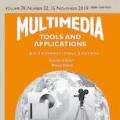Although Metaverse has recently been widely studied, its practical application still faces many challenges. One of the severe challenges is the lack of sufficient resources for computing and communication on local devices, resulting in the inability to access the Metaverse services. To address this issue, this paper proposes a practical blockchain-based mobile edge computing (MEC) platform for resource sharing and optimal utilization to complete the requested offloading tasks, given the heterogeneity of servers' available resources and that of users' task requests. To be specific, we first elaborate the design of our proposed system and then dive into the task allocation mechanism to assign offloading tasks to proper servers. To solve the multiple task allocation (MTA) problem in polynomial time, we devise a learning-based algorithm. Since the objective function and constraints of MTA are significantly affected by the servers uploading the tasks, we reformulate it as a reinforcement learning problem and calculate the rewards for each state and action considering the influences of servers. Finally, numerous experiments are conducted to demonstrate the effectiveness and efficiency of our proposed system and algorithms.
翻译:虽然最近广泛研究了该元数据,但其实际应用仍面临许多挑战,其中一项严峻挑战是当地设备缺乏足够的计算和通信资源,导致无法利用该元数据服务。为解决这一问题,本文件建议建立一个实用的基于链式移动边缘计算平台(MEC),用于资源共享和最佳利用,以完成所要求的卸载任务,因为服务器的现有资源和用户的任务请求不尽相同。具体地说,我们首先详细设计了我们提议的系统的设计,然后跳入任务分配机制,以便将任务卸载到适当的服务器上。为了解决多式时间的多重任务分配问题,我们设计了一个基于学习的算法。由于MTA的客观功能和限制受到上载任务服务器的重大影响,我们将其重新定位为强化学习问题,并计算考虑到服务器影响的每一州和行动的报酬。最后,我们进行了许多实验,以证明我们提议的系统和算法的有效性和效率。




